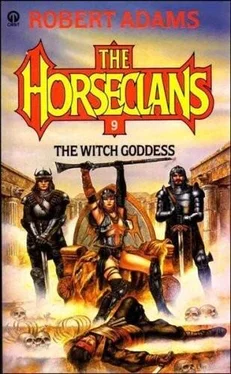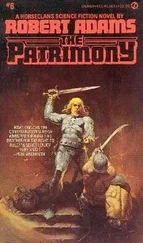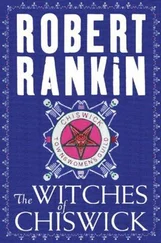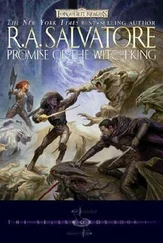Old Johnny Skinhead did not need to be told that a good number of equines were coming rapidly down the track from the north. He had felt the distant vibrations in the ground whereon he and the others lay, so he did not bother to even sit up when called to, saying only, “Cain’ be nobody but thet slowass Strowng Tom, him and the fellers as come ‘roun”t’othuh side. Somebody wake me up whinevuh they gits here. Heahnh?” Then he settled back down to sleep.
Dead certain that the only strangers were by now well east of his temporary encampment, the bully had posted no men to stay awake and watch the position—squarely athwart the track, on either side of the stream—nor had he set up a picket line, only hobbling the ponies and his horse that they might not stray, grazing, too far away.
Corbett’s point riders did not return to the main column, they just waited in the middle of the track until the others came up to them. At their word, Corbett halted his command and, afoot, went up to view what they had discovered. On the day before, he had begun to nurture a grudging respect for the Ganiks, but most of it evaporated when he saw the careless disposition of the party of snoring cannibals.
Back with his force, he held a low-voiced conference with Corporal Cash and some of the others, accurately describing what he had seen up ahead.
“The whole damned passel of them are asleep, scattered up and down the track itself for some yards, and not a guard to be seen, anywhere. The ponies are hobbled, but they’re even more scattered, grazing and browsing, and they all seem to have been unsaddled, too.
“Now we couldn’t have gotten as close as we are to them without them being aware of it, especially since they were lying on the ground. So I suspect that they think we’re the other horsemen, the ones that rode off to the east of that defile, then came back into that valley, back there.
“I counted about three dozen of the buggers, so order the men to save their rifles and ammo—after all, we have no way of knowing what dangers lie ahead of us, still. We’ll keep up a fast trot until we come in sight of them, then charge. Sabers, axes and darts should be all we need on this bunch, unprepared as they are, and dismounted, to boot Questions? All right then, let’s get about it, men.”
When the assigned troopers got Dr. Braun out of his saddle and laid out on a pallet of saddleblankets and sheepskins, one of them fetched over Gumpner, who set about examining the scientist as gently as possible.
He was truly gentle; nonetheless, Braun was screaming full-throatedly and gasping between screams, with tears bathing his face, before the examination was done.
Finally, the old noncom hunkered back, frowning, thinking, while the patient shuddered and sobbed. It was bad enough. The protracted cross-country trek in the saddle had not done the doctor a bit of good, and the more recent two full days and one night, almost without pause, had put the tin hat on it.
The entire leg—from crotch to toes—was immensely swollen and discolored. In several places, it was oozing clear or pink-tinged serum through the dirty, crusty bandages, while all of the toes and part of the foot looked to Gumpner to be in the earliest stage of black rot—gangrene. Harry Braun clearly needed the surgeon the party no longer had. A bright, multi-talented man, Gumpner could bandage wounds and set and splint broken bones, remove smashed teeth and their stumps, cut out missile points and stop the bleeding of wounds with fair consistency. He had done these various things many times, over the years, but he knew that he simply was not qualified to set about the procedures here required, and he deeply regretted the loss of Dr. Arenstein.
He had closely observed physicians in Broomtown, Major Corbett and, more recently, Dr. Arenstein administer the different types of injections—subcutaneous, intramuscular and intravenous—and he therefore felt certain that he could successfully administer drugs or antibiotics, but he could not differentiate among the host of small bottles and glass ampules which were labeled only with combinations of letters and numbers, nor was he in any way certain just what amounts should be injected or how frequently.
As soon as he had quieted somewhat, the noncom matter-of-factly explained the situation and his own impotence in alleviating it to the scientist, withholding only his diagnosis of the lividity and lack of warmth in Braun’s toes and foot.
“And so,” he finished, “I’ll be happy to give you something for your pain, Doctor, if you can show me which of the bottles to draw it from and how much to draw. But I’m afraid to try to open your leg and drain it, as it should be drained, I know. The condition it is now in, in fact, I’m even afraid to try to change those bandages.”
The grizzled noncom’s sincerity and concern were patent, and Braun was just then in too much agony to affect the open arrogance with which he usually masked his multitudinous fears of the world and most things and people in it Weakly, he pointed out to Gumpner the bottles Erica had used before she had ceased dosing him against pain, then he indicated the dosage line on the barrel of the hypodermic syringe. He only whimpered once when the needle entered his flesh and, shortly, sank gratefully into the warm, feather-soft embrace of the drug.
Gumpner had placed a man among the rocks over the hidden entry to the narrow defile, another partway up the mountain, and a third up beyond the second; therefore, he had been aware that his pursuers had passed, headed south along the track, and then returned, and he knew that they were camping almost on the doorstep of his hideaway.
Consequently, he had slept but lightly, despite his own exhaustion, and was out of his blankets and pulling on his boots before the sentry who had dropped from the rock wall had trotted up to him.
“Sarge,” panted the trooper, “Gibson flashed up a message that said that at least a score of men, not Ganiks, have come down the track from the north and attacked the cannibals that were camped at the stream. He couldn’t be sure, of course, but he said that most of them looked like they had rifles on their backs, and they were all armed with sabers or axes.”
Gumpner stamped the rest of the way into his boots, checked his pistol and rifle, slung the latter, then picked up his axe. Then he turned to the other sergeant.
“Cabell, you’re in charge here until I get back. Have a pony saddled for me, quickly, I don’t want to risk the horse down that streambed in the dark. And one for Allison here, too; he’s coming with me.”
Corbett and his men came down the gradual curve of the track on a three-rider front that spanned the trace from one brushy shoulder to the other, sabers and axes—and, in Jay Corbett’s case, a nicely balanced steel mace out but at the low-guard position, lest a glimmer of moonlight reveal that these riders were approaching the sleeping Ganiks on the attack.
At the place where the curve ended, where the track straightened out and widened, more than doubling in width, the officer waved the mace over his head. With practiced ease, the veteran troopers went from a three- to a seven-man front, roared a deep-voiced cheer and charged down the track upon the unprepared foemen.
A tall, large-framed man suddenly stood up directly in the officer’s path. His bushy beard was either white or very pale blond—Corbett could not tell in the moonlight—but his bare head was completely bald and he was frantically tugging to get a sword free from an ill-fitting sheath or scabbard.
Although he could as easily have crushed that bare-skinned head with the heavy mace, Corbett slightly altered his aim and brought down the Middle Kingdoms weapon with all his might and all its not inconsiderable weight on the bald man’s right shoulder. He rode on as the Ganik shrieked and began to crumple.
Читать дальше












